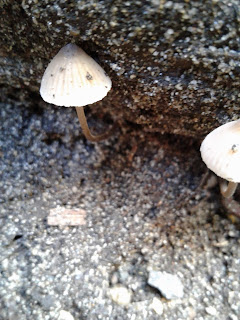The child has the right to love.“Love the child, not just your own”
The child has the right to respect“Respect for the mysteries and the ups and downs of that difficult task of growing up.”
The child has the right to optimal conditions in which to grow and develop.
“We undertake to eliminate hunger, overcrowded conditions, neglect and exploitation.
Suffering bred of poverty spreads like lice - sadism, crime, and brutality are nurtured on it.”
The child has the right to live in the present.
“Children are not the people of tomorrow. They are people today.”
The child has the right to be himself or herself.
“A child is not a lottery ticket, marked to win first prize.”
The child has the right to make mistakes.
“There are no more fools among children than among adults.”
The child has the right to fail.
“We renounce the deceptive longing for perfect children.”
The child has the right to criticize“Children are not permitted to notice our faults and shortcomings.
We appear before them in the adult garb of perfection.”
The child has the right to be taken seriously.
“You will never understand children if you belittle their qualities.
Who asks the child for her opinion or consent?”
The child has the right to be appreciated for what he is.
“The market value of the very young is small.
Only in the sight of God is the apple blossom worth as much as the apple.”
The child has the right to protection
“We undertake to protect the child from all forms of violence and abuse.”
The child has the right to respect for his secrets.
“If a child trusts you with his secret, be grateful, for his confidence is the highest prize.”
The child has the right to “a lie, a deception, a theft.”
“He does not have the right to lie, deceive, or steal.”
The child has the right to respect for his belongings.
“No matter how insignificant or valueless – they are not just bits of rubbish!”
The child has the right to education
“One is struck by the fact that everywhere military spending is greater than that for education.”
The child has the right to a future on this planet.
“We plunder mountains, cut down trees and destroy animals”
The child has the right to forgiveness.
“More often than not we are their harsh judges, rather than their counsellors and consolers.”
The child has the right to protest an injustice“We must end absolute authority. Always listen and try and see things through the eyes of the child.”
The child has the right to happiness“Let children drink in the joy of the morning. Show them love, kindness and understanding - set an example.”
The child has the right to respect for his grief.
“Even though it be for the loss of a pebble.”
The child has the right to a Children’s Court where he can judge and be judged by his peers
“We are the sole judges of children’s actions, movements, thoughts and plans. I know that a Children’s Court is essential. I hope that in fifty years there will not be a single school, or institution without one.”
The child has the right to be defended in the juvenile justice court system.
“The delinquent child is still a child, who has not given up yet, but does not know who he is. A punitive sentence could adversely influence his future sense of himself and his behaviour. Because it is society that has failed him and made him behave this way.”
The child has the right to commune with God.
‘Do allow children to find him in quiet contemplation - in their souls’
The child has the right to die prematurely“A mother’s deep love for her child must give him the right to a premature death. Not every bush grows into a tree.”
(The King of Children by Betty Lifton)


















